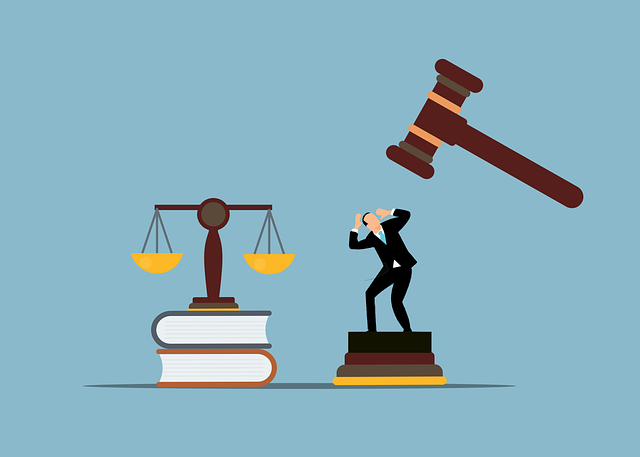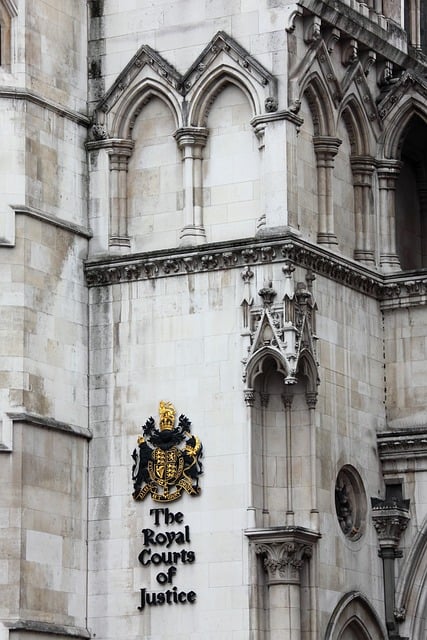Oregon's criminal justice system is governed by a comprehensive set of Oregon criminal defense laws detailed in the Oregon Revised Statutes (ORS). These Oregon legal statutes cover all stages of the criminal process, defining rights for defendants and victims, search and seizure rules, grand jury procedures, evidence admissibility, and defenses like self-defense and mental responsibility. The ORS also has specific regulations for infractions, ensuring fairness. Understanding these Oregon defense regulations and legal framework Oregon is crucial for anyone facing criminal charges or navigating the system. Key terms include Oregon criminal defense laws, legal statutes, criminal defense basics Oregon, Oregon defense regulations, and legal framework in Oregon.
In the intricate landscape of Oregon’s criminal justice system, comprehending the state’s unique legal framework is paramount for anyone facing criminal charges. This comprehensive guide delves into the fundamentals of Oregon criminal defense laws, navigating through its legal system, and highlighting key players involved. From general principles to specific statutes, we explore how these laws shape defense strategies, ensuring accused individuals understand their rights in this complex environment. By deciphering Oregon’s legal tapestry, residents can confidently navigate the criminal justice process.
- Understanding Oregon's Legal Framework for Criminal Defense
- – Overview of the Oregon legal system
- – Key players in the criminal justice process
- Oregon Criminal Defense Laws: A Basic Breakdown
- – Explanation of general criminal defense principles
Understanding Oregon's Legal Framework for Criminal Defense

Oregon’s legal framework for criminal defense is structured by a complex interplay of state laws and regulations, providing a robust system to protect individuals accused of crimes. At its core, Oregon criminal defense laws are defined within the Oregon Revised Statutes (ORS), which encompass various codes governing every aspect of the criminal justice process. These statutes outline the rights of both defendants and victims, setting clear parameters for law enforcement, prosecutors, and courts. Understanding these legal frameworks is crucial for anyone navigating Oregon’s criminal defense basics.
The ORS details procedures from initial arrests to trials, including search and seizure rules, grand jury proceedings, and the admissibility of evidence. It also codifies various defenses available to defendants, such as self-defense, defense of others, and lack of mental responsibility. Additionally, Oregon’s legal framework includes specific regulations for lesser offenses, often referred to as infractions, which carry less severe penalties. These laws are designed to ensure fairness, provide due process, and safeguard the rights of individuals facing criminal charges, reflecting a comprehensive understanding of Oregon defense regulations.
– Overview of the Oregon legal system

Oregon’s legal system operates within a unique framework that shapes its criminal justice approach. The state’s legal statutes and regulations reflect a balanced perspective, aiming to protect both individual rights and public safety. At the heart of Oregon’s legal framework are the Oregon criminal defense laws, which provide a robust foundation for those accused of crimes. These laws are designed to ensure fair trials, safeguard constitutional rights, and offer various defenses to individuals facing criminal charges.
Understanding Oregon laws is crucial for anyone navigating its criminal justice system. The state’s defense regulations allow for a comprehensive range of legal strategies, from challenging evidence to raising procedural issues. Criminal defense basics in Oregon involve familiarizing oneself with the legal framework, which includes statutes of limitations, procedural rules, and constitutional protections. This knowledge empowers individuals to exercise their rights effectively and navigate the complexities of Oregon’s criminal justice process.
– Key players in the criminal justice process

In Oregon, the criminal justice process involves several key players who operate within the state’s legal framework, as defined by Oregon legal statutes and defense regulations. The process begins with the arrest or citation of an individual suspected of committing a crime. At this stage, it’s crucial to understand Oregon criminal defense laws, which offer protections for those accused, ensuring they are treated fairly according to the law.
The next step involves the filing of formal charges by the prosecution, typically based on evidence gathered during the investigation. The accused then has the right to legal representation, where a criminal defense attorney in Oregon plays a vital role in understanding and navigating the state’s defense regulations. They can challenge the prosecution’s case, examine evidence, and argue for their client’s rights and potential defenses under Oregon’s legal framework.
Oregon Criminal Defense Laws: A Basic Breakdown

Oregon’s criminal defense laws are codified in its legal statutes, forming a comprehensive legal framework that protects the rights of individuals accused of crimes. Understanding these regulations is crucial for anyone navigating Oregon’s justice system. At its core, Oregon’s approach to criminal defense emphasizes fairness and due process, ensuring that suspects are treated with respect while investigating and prosecuting potential offenses.
The state’s laws cover various aspects of criminal procedure, including the rights of accused persons, evidence collection and admissibility, and sentencing guidelines. For instance, Oregon legal statutes clearly define what constitutes a crime, outline the necessary elements for prosecution, and establish defenses that can be raised against charges. This includes basic criminal defense basics like self-defense, lack of intent, and mistake of fact—all essential concepts to know when facing legal repercussions in Oregon.
– Explanation of general criminal defense principles

In Oregon, like in many other states, criminal defense is governed by a complex interplay of state laws and legal statutes, forming a robust yet nuanced legal framework. Understanding Oregon criminal defense laws is crucial for anyone facing criminal charges in this state. The basics involve several key principles designed to protect individuals from unfair prosecution. One primary tenet asserts that the burden of proof lies with the prosecution, meaning they must establish guilt beyond a reasonable doubt. This standard sets a high bar for convicting individuals, ensuring that only strong cases meet the required evidence threshold.
Oregon’s legal framework also incorporates various defenses that can be invoked by accused individuals. These include defenses based on self-defense, lack of mens rea (guilt of mind), and challenges to the admissibility of evidence. Oregon defense regulations allow for a thorough examination of evidence, ensuring that any potential biases or irregularities are brought to light. This process is vital in maintaining fairness and ensuring that justice is served within the legal parameters established by the state’s laws and legal statutes.
